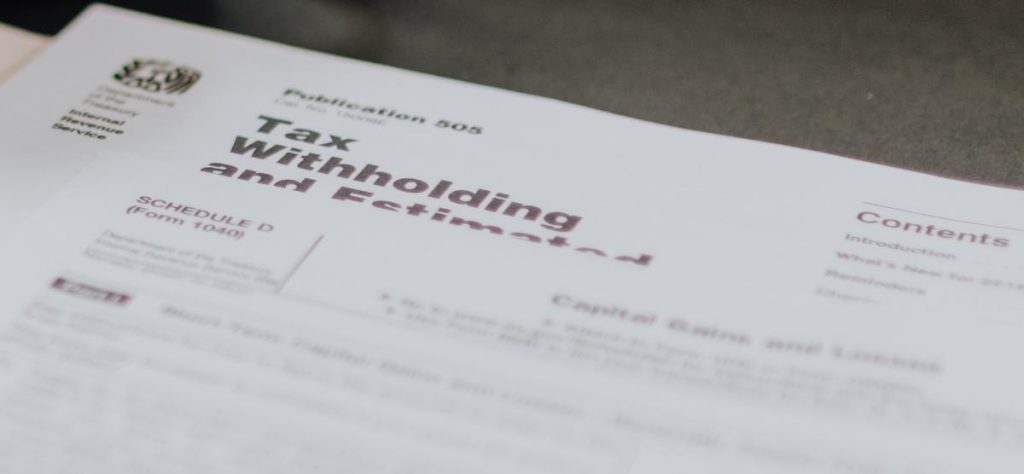Digital Nomad Taxes
The subject of where to pay digital nomad taxes often arises for those who operate independently of any area. Unfortunately, the answer is complicated since no unified tax legislation applies to digital nomads and their global income.
Typically, it’s essential to pay your digital nomad taxes accurately since there may be serious legal and financial consequences if you don’t. That is why, as a digital nomad, it is vital to get expert guidance on where you are a tax resident.
This digital nomad tax guide is aimed to be informative and provide a broad overview of digital nomad taxes. Nonetheless, it would be best to get expert tax advisory services to examine your circumstances.
Contents
Where is Digital Nomad Taxes Paid?

Digital nomads are often required to file taxes in their home nation. However, in certain situations, the jurisdiction in which the employee works may levy digital nomad taxes on the employee. As a result, this is often determined by how long the individual has lived and worked in that jurisdiction. Traveling digital nomads may wind up evading some taxes by avoiding stays in any nation long enough to trigger tax responsibility.
Furthermore, several nations have agreements that prevent workers from being taxed twice while enabling the host country to claim the required taxes. For example, US Americans working remotely in the UK may be eligible to pay National Insurance rather than Social Security tax.
Also, for your company to be compliant when hiring digital nomads, it’s critical to grasp the complexities of what digital nomad taxes must be deducted and where those taxes should be sent.
Types of Digital Nomad Taxes

Digital nomads must pay personal income tax, and if they run any businesses or are somehow engaged in their management, they may also be compelled to pay corporation taxes.
Since personal tax is often paid where a nomad is a tax resident, corporation tax may be paid in a particular country because there are typically various regulations that apply to these two unique kinds of taxation. Mainly this is true when a company is international and operates in many different nations. Let’s explore further these two main types of digital nomad taxes.
- Personal Taxes for Digital Nomads
Each nation has its own set of complex tax obligations. Most countries require persons to pay personal tax on income depending on where they live, which may differ from where they were born. To be designated a resident of a nation for tax reasons, other restrictions apply. Also, you need to comply with agreements you have to pay self employment taxes. However, this is frequently where you spend most of your time (for instance, more than six months of the year).
Some nations apply tax related laws to a person’s global income based on citizenship, regardless of where their residents live or reside. Other nations have a territorial tax system, which means that any money made locally is taxed in that country, but income obtained outside of that country is not taxed there. However, a few nations do not levy tax on nomads’ income.
As a result, this might complicate tax rules for digital nomads who may not live in one area long enough to qualify as tax residents. Sometimes two nations may seek tax from the same person. If those nations have a double taxation agreement, the person can avoid paying a large double taxation levy.
- Company Tax for Digital Nomads
Companies are subject to various tax rules worldwide, just as personal income tax is. The nation that a corporation works in, where it is incorporated, and where it is efficiently managed determine where the firm pays digital nomad taxes. Additionally, the “permanent establishment” concept of international permits governments to tax the firm earnings of non-resident corporations if business operations are conducted there.
Knowing which federal tax rules are in force in the nations in which your company intends to operate is a crucial component of prudent business management and may have a significant influence on the smooth operation of any firm.
Companies are generally responsible for paying social and corporation taxes, typically paid in the nation where the workers are situated. Additionally, businesses pay VAT in many regions of the globe and may need to register for VAT and file yearly VAT reports.
Tax Exclusions or Deductions for Digital Nomads
Although digital nomads in some countries, such as the USA, must continue paying their taxes even outside the country, they are eligible for several tax breaks and deductions. These tax exclusions and deductions include the following:
- Foreign Tax Credit (FTC)
If you are a resident of a foreign country and pay income taxes in your new home country, the Foreign Tax Credit (FTC) enables you to deduct those tax payments from your US tax bill. This credit is only available to those who pay income taxes in their new home country. For instance, let’s assume you owe the United States $2000 but have already paid Spain $500 in tax credit. Instead of owing $300 in US taxes, you will be responsible for paying $1,500 in FTC fees.
- Exclusion of Foreign Housing
The Foreign Housing Exclusion (FHE) enables digital nomads to deduct income from their US tax liability. The FHE estimates how much you may exclude depending on your overseas housing expenditures. Housing expenditures eligible for the FHE include rent, insurance for occupants, property insurance and utilities.
However, the FHE does not pay the following expenses: Any “luxurious” purchases, household labour and mortgage payments.
- Foreign Earned Income Exclusions (FEIE)
The earned income exclusion FEIE programme allows digital nomads to remove up to $112,000 (2022) of their income earned abroad from their taxable income in the United States.
For a digital nomad to be eligible for FEIE and enjoy the tax benefits, you must pass one of two tests:
Physical Presence Test: Another option to qualify for FEIE is to demonstrate that you have spent 330 days outside the United States in any 365-day period, which does not have to be a calendar year.
Bona Fide Residence Test: If you are a tax resident of a nation and are subject to its taxation regulations, you may submit an FEIE report on your tax return if you have resided there for at least one calendar year.
How Digital Nomads Can Avoid Paying Taxes?

Indeed, digital nomads can avoid legally paying taxes. A digital nomad can select the appropriate legal system and organisational structure, maintain openness and honesty, and abide by the guidelines for international tax compliance. Also, you can consult with your legal and financial advisors.
If you are not a citizen of Eritrea or the United States, you can establish yourself as a tax-neutral or offshore person. Someone exempted from paying digital nomad taxes but complies with the standards for paying digital nomad taxes internationally isn’t dishonest.
Additionally, there are several legal systems with various laws. The ideal path to becoming a tax-neutral or offshore person is to locate a nation where income from overseas sources is tax-exempt. You can keep your tax resident status with nothing in the way of residency restrictions. You will always require the legal and accounting counsel of professionals and ensure you comply with international tax laws since they are ever-changing.
Usually, there are specific, definite guidelines you must adhere to. If you remain in a place long enough to file taxes, kindly obey the law and carry out your obligations. However, you may become tax neutral if you keep your no-tax status and don’t move to another country and become a tax resident there.
Here’s what a digital nomad needs to do to legally avoid paying digital nomad taxes.
• To begin, you will need to choose a proper tax jurisdiction that does not generate tax revenue from outside the country.
• Decide to settle down and register as a tax resident.
• Either retain your tax resident status in the country where you now live by remaining there for the minimum required time or need to spend more time in other countries to qualify as a tax resident.
• You may either submit your income and VAT taxes or choose not to. The tax legislation of each nation determines the obligation to disclose matters.
• Enjoy life as a digital nomad.
Six Best Tax-Friendly Countries for Digital Nomads
Many people who work from home find the possibility of becoming digital nomads to be quite appealing. Find out which countries have the most favourable visas for digital nomads so that you may make your goals of living abroad a reality.
Here are some of the most affordable and best countries for digital nomads tax.
- Croatia
Croatia is among one of the most visually stunning countries in Europe. Croatia offers digital nomads a wide variety of benefits including the affordable Croatia digital nomad tax, cheap cost of living and an opportunity to network with digital nomads from all over the globe because the natural scenery is so varied and stunning.
The concept of digital nomadism has been enthusiastically embraced in Croatia, which has a community set aside just for those who work from home and is situated just outside the city of Zadar along the sea.
Here are some of the requirements required:
• Average monthly living expenses of about $900-$1,200
• Speak the Croatian language.
• The needed minimum income is $2,400. (17,822.50 HRK)
• A visa costs $180 if applied at a local consulate in the United States and $100 if applied in-country.
- Portugal, digital nomad taxes portugal
If you earn little money but have always wanted to live in Europe, Portugal is the perfect spot for you to do so. Digital nomads flock to the area in droves because of its welcoming locals, stunning architecture, favourable Portugal digital nomad tax and dazzling beaches. Even while the D7 visa is not designed expressly for digital nomads, it does make it possible for remote workers to establish themselves in Portugal.
Portugal, located on the Iberian Peninsula, has a diversified topography that offers something for everyone, regardless of whether you like lounging on the beach or trekking through peaceful woods. Additionally, due to its size, you won’t have to choose between any of these beautiful features since you may have them all!
Here are the requirements that you’ll need:
• €705 per month in foreign-sourced income or savings
• €7,500+ in foreign bank accounts (Portuguese ) under your name
• A permit to work remotely from your overseas employer.
- Spain
Spain is also relatively cheap compared to living in other European cities. Most digital nomads love this country for its thriving start-up culture, Spain digital nomad tax and friendly climate for digital nomads.
For those of you who have EU passports, here’s some good news: you may now work remotely in Spain for up to six months.
Don’t worry if you’re coming from a country that is not a member of the EU since the Startup Act is working on creating a new visa specifically for digital nomads.
Additional information includes the following:
• The visa is for people employed mainly by organisations that are not Spanish
• Applicants must fulfil the financial conditions
• The visa is anticipated to continue for one year, with the potential to extend it for another two years.
- Mexico
If you want to make regular trips back to your home country, Mexico is an excellent location to launch a career as a digital nomad. Mexico has flights available at acceptable prices and travel times departing from most of the main airports in the United States. Mexico’s neighbour to the south is starting to entice an increasing number of remote workers from other countries who are drawn to the country’s delicious cuisine, kind and welcoming people and vibrant musical culture.
The median internet speed in Mexico is around 46 Mbps. Major cities such as Mexico City provide digital nomads access to wonderful co-working spaces where they can get work done and meet new people.
Mexico City, Playa del Carmen and Oaxaca are just a few places that nomads prefer to visit because of the beautiful environment and many fun activities. Mexico is also well known not just for its weather but also for its culture, food and relatively low cost of living. Since the calendar is reset whenever you leave the nation, regardless of the number of days you are allotted, most people often take flights to nearby countries and then return.
What you’ll be required:
• Speak the Spanish language
• Average monthly living expenses for about $750-$1,000
• The needed monthly income is $2,730
• Visa fees range from $190 to $390, depending on the duration of the visa.
- Estonia
In 2020, Estonia was the first nation to provide a visa specifically for digital nomads. Since then, the government of Estonia has been making significant efforts to position the country as a desirable location for digital nomads. Workers who do their jobs from home have access to benefits such as fair Estonia digital nomad visa taxes, widespread free public internet coverage and cafés and co-working spaces that welcome them.
A well-established programme has several benefits, one of which is that the procedure is well-defined and structured. Citizens of the United States can submit their applications at the Estonian embassy in their home state, inside Estonia itself, if they are present lawfully or at a VFS processing facility.
The preservation of Estonia’s traditional folk music and dance has earned the country a reputation for having a significant cultural legacy. Even though the winters are freezing and covered with snow, there is no shortage of saunas to keep you toasty, even in the middle of the city.
What you’ll need to know:
• Average monthly living expenses of $1,110-$1,300
• Speak the Estonian language,
• The minimum income is $3,568 (€3504)
• The Visa fees are $81 (€80) for 90 days and $102 (€100) for one year.
- Georgia
Georgia, located in Europe’s Caucasus area, is a tiny nation rich in culture that provides appealing tax prospects for digital nomads. Georgia offers a digital nomad visa dubbed “Remotely from Georgia,” which taxes just 1% of your gross income up to $155,000. To be eligible for the visa, you must have a monthly income of at least $2000 or a foreign bank account report of at least $24,000.
Aside from its low taxes, Georgia has minimal living expenses and is one of the cheapest nations in Europe. This country is also regarded as one of the world’s safest nations.
Digital Nomad Taxes FAQs
How do state taxes work for digital nomads?
The state in which digital nomads previously lived and the length of time since they departed play a role in determining whether or not they must file or pay state taxes. Generally, the only time you are required to submit a state tax return is if you earned money in that state or resided in that state for a certain period during the tax year.
How long can you work remotely in another country without paying taxes?
If you remain in a country for more than six months in a year, most countries require you to register as a tax resident and pay tax on your earnings. The laws that govern residence for tax purposes also apply to independent contractors and part-time employees, particularly in reporting taxes.
What are the best countries for digital nomads in terms of taxation?
The best countries for digital nomads to avoid paying high taxes would be Andorra, Cyprus, Dubai… There are also countries that are cheaper but have higher taxes than the above mentioned, the key is to find the middle ground, here you have the cheapest cities in Spain, a cheap country with tax advantages for digital nomads and good quality of life.
Do digital nomads pay tax in Mexico?
Yes, you pay. In Mexico, taxes are decided by your circumstances as well as your income. The concept is straightforward, yet every resident will pay taxes ranging from 0% to 30%. Every purchase you make in Mexico will be taxed but pre-taxed, making it easier to buy things.
How do you file taxes if you are a nomad?
Regardless of your nation of residence or work situation, the following is the common knowledge on how to submit your taxes correctly:
• Keep track of your earnings.
• Maintain a record of your company’s costs. Most nations demand actual receipts (rather than digital versions) to claim tax deductions, so being prepared pays off.
• Learn more. Examine the tax laws, rules, tax forms, revenue agency websites and tax blogs.
• Don’t put it off. You should only anticipate an extension if you are in your nation of residence when your digital nomad taxes are due.
• If the situation is problematic, consult an accountant or tax preparer knowledgeable about tax laws and customs in the official country in which you reside. If you work from a nation other than your official home, look for one specialising in the rapidly expanding sector of ex-pat taxation services.




